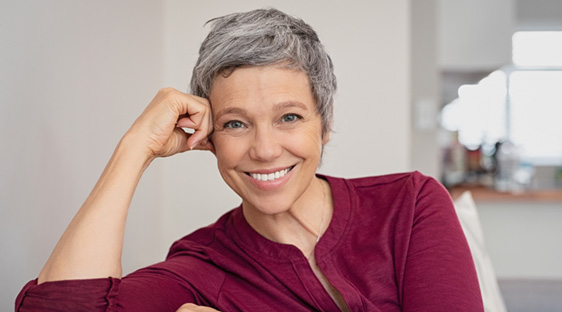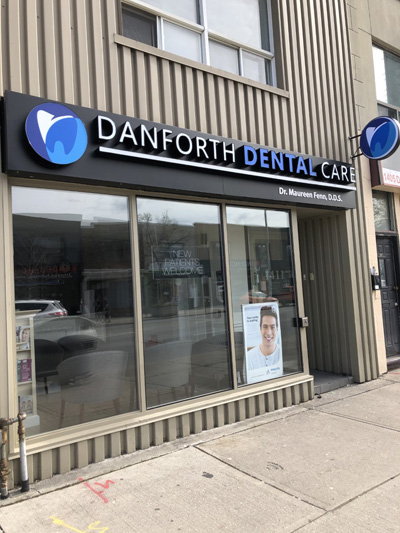How Does Our Oral Health Change as We Get Older?
Here’s what can happen, and what we can do about it
As we age, we become more susceptible to issues with our health. But what does getting older mean for our oral health in particular?
Well, our oral health can be impacted in a number of ways as a result of older age. But fortunately, if we take the right preventive measures, we can avoid these issues and keep our smiles functioning and looking great!
With that said, here are five oral health issues we can experience as a result of older age, and what you can do to prevent them:
1. We become more susceptible to gum disease and tooth decay
The older adult and senior population is at a higher risk for dry mouth or “xerostomia”, as this is a common side effect of certain medications that are used to treat health conditions associated with aging. But our saliva helps to keep harmful bacteria from thriving and wreaking havoc in our mouths – and with dry mouth, there is a lack of adequate saliva production.
This lack of saliva increases our susceptibility to gum disease and tooth decay, especially root decay in cases where gums have receded considerably. Which leads us into the next issue…
2. We can experience gum recession
Ever heard the expression; “he/she’s looking long in the tooth”? This phrase exists because when many of us get older, our gum have noticeably receded or pulled back from our teeth, exposing more of the tooth or its root.
Our Danforth dentist agrees that the best way to prevent gum recession is to brush twice daily and gently using a soft-bristled toothbrush, and also floss once daily. Proper daily cleaning will prevent gum disease (which leads to recession), and a gentler cleaning approach will help to preserve the gum tissue.
3. We become more at risk for tooth loss
Both gum disease and tooth decay can lead to tooth loss if we aren’t taking the steps to properly look after our mouths daily, and also ensure we’re going for our routine dental appointments. Gum disease leads to tooth loss when the gums have receded so severely that the tooth no longer has a foundation or support, and tooth decay leads to tooth loss when it is left untreated for long enough, destroying the tooth beyond repair.
4. Our risk for oral cancer increases
According to the National Institute of Dental and Craniofacial Research, oral cancer rates increase rapidly after age 50, peaking between the ages of 60 and 70. The best actions we can take against oral cancer are not smoking or using tobacco products, sticking to the healthy guidelines when it comes to consuming alcohol, and protecting ourselves from the HPV virus (a known cause of oral cancer) through the HPV vaccine and/or using protection.
5. Our smiles can lose their luster
As we age, our teeth tend to lose their natural vibrancy; becoming dull or yellow-ish in colour. Unsightly cracks, chips and pits can also form on the teeth as a result of natural wear and tear.
Fortunately however, there are cosmetic dental treatments available to improve the smile’s appearance that can address all of the issues previously mentioned – such as teeth whitening, cosmetic bonding, and veneers.
How will your smile stand the test of time?
As you can see, “getting older” doesn’t need to mean anything bad for our oral health! Our natural teeth were made to last a lifetime… and by taking the right steps to ensure our smiles age gracefully, we can avoid many costly problems.


We are conveniently located near Greektown on the TTC Danforth Avenue subway line between Greenwood Avenue and Coxwell Avenue.
1411 Danforth Avenue, Toronto, ON M4J 1N2